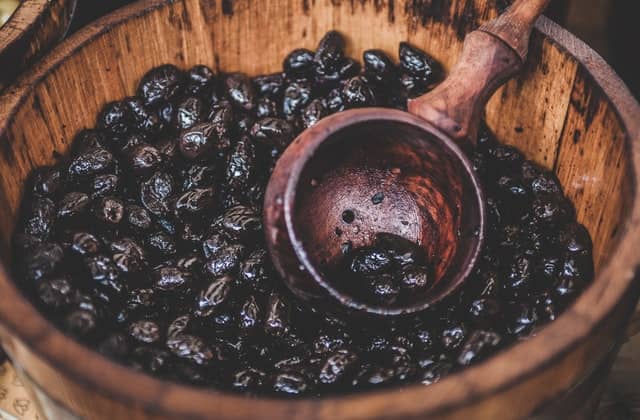Olives are tiny fruits used as a staple in savory Mediterranean dishes for flavor and nutrition. They are known to offer a variety of health benefits like slowing down aging, a boost in good gut bacteria and improved heart health. Those who have recently switched to a plant-based diet may wonder whether this food is ideal for consumption.
So, are olives plant based? Yes, olives are purely plant-based. They are tiny, oval fruits that come in black and green varieties depending on when they are plucked. As they are obtained from plants in their natural form, it is easy to say they are plant based.

Most olives are plant-based unless they are mixed with some animal-based ingredient or processed to make another product. Let us try to learn more about this food to understand whether it fits a plant-based diet.
Why Are Olives Plant Based?
Olives are naturally growing fruits and can be a part of a plant-based diet. They are rich in healthy fats, helping you lower the risks of heart diseases and inflammation. Once they are picked, they are either cured or made into oil.
While oil is certainly not healthy, cured olives can be used in cooking or consumed raw on a plant-based diet. They are generally cured using water, salt or brine to improve the flavor. It is best to check the label of the product to make sure it fits your diet restrictions and health goals.
What Are The Main Ingredients In Olives?
Most brands selling black or green olives offer them in a solution of salt and water and add no other ingredients. Other products like olive oil may contain additives and preservatives that you should look for before adding them to your diet.
The curing process is completely healthy and does not affect the nutrient content of olives. Brine-cured olives are a fermented version that promotes gut health. The curing process increases the salt content which can be a concern for those who watch their salt intake.
Olives Nutrition
Olives are one of the healthiest plant-based foods you can add to your daily diet. They are associated with several health benefits, particularly for the heart health and prevention of cancer. Their high content of antioxidants helps fight inflammation and boost immune health. They also help lower cholesterol levels and blood pressure.
Olives contain 120-140 calories per 100 grams. Here is the nutritional information for 100 grams of ripe, canned olives:
- Calories: 120
- Protein: 0.8 grams
- Fiber: 3.2 g
- Fat: 10.7 g
- Carbs: 6.3 g
Fat
Containing 11-15 percent fat, olives mainly have monounsaturated fatty acid that is linked to health benefits.
Carbs and Fiber
With 4-6 percent carb, olives are a low-carb fruit. Most of the carbs are fiber, however, olives are not a good fiber source as 10 olives provide just 1.5 g.
Vitamins and Minerals
Olives are naturally high in micronutrients including calcium, copper, iron and vitamin E. While vitamin E is a powerful antioxidant, iron helps transport oxygen to the body. Calcium is needed for strong bones and teeth.
Conclusion
So, you can add olives to your plant-based diet to get the nutritional benefits they offer. The ideal portion size is 15-20g that equals 4-5 olives for an adult. They are a versatile fruit that can be consumed as a snack or added to salads and recipes. Always make sure to check the label before buying the product to make sure there are no extras like artificial flavoring and sugar.
Most Popular Questions: